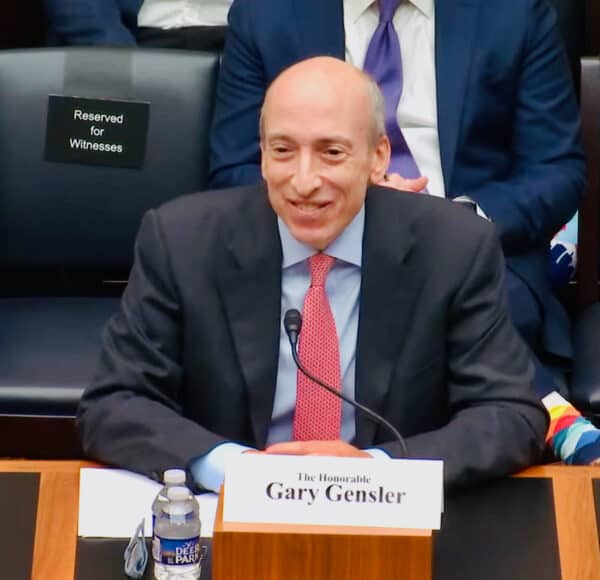Ram Ahluwalia, founder of PeerIQ (sold) and now founder of Lumida, has slammed Chairman Gary Gensler, claiming the damage he has done to the Securities and Exchange Commission (SEC) is significant. Ahluwalia references an article that quoted former SEC Commissioner Michael Piwowar.
In the article published on Pensions&Investments, Piwowar – who is now Executive Vice President at the Milken Institute – claimed that the SEC is moving too fast on too many issues.
“I have never seen an environment where so many different trade associations, individual market participants in all areas of commission rule-making … are so ready to engage in litigation against the commission,” said Piwowar.
Piwowar is voicing a sentiment that is held by many financial industry insiders who are frustrated with the extent and pace of regulation that some believe go beyond the agency’s remit.
Piwowar added that the SEC is forced to defend itself in its rulemaking and enforcement actions to the point it is “really taxing the resources of the agency.”
Ahluwalia re-posted an X he sent last September questioning the legacy of Gensler’s tenure at the SEC:
“1) Death of Chevron Doctrine: Under Chair Gensler’s watch, the SEC’s waning court victories have diluted the deference usually afforded to the agency’s interpretations of ambiguous laws. The doctrine’s erosion suggests that future SEC actions will face higher judicial scrutiny.
2) Shift Toward Congressional Authority: As the SEC loses in multiple districts, courts increasingly look to Congress for definitive guidance on ambiguous matters. This redirects the source of financial regulation authority from the SEC to Congress. (Major Questions Doctrine in ascent.)
3) Redefining Investment and Commodities: Legal precedent is evolving. One court’s ruling that ‘speculation’ doesn’t qualify as an investment if it lacks common enterprise undermines traditional securities definitions. Combine that with the Ripple ruling (the manner of sale matters in determining whether something is a security) and you have a stronger CFTC and a proliferation of Digital Asset commodities.
4) Questioning Regulation by Enforcement: Courts have deemed the SEC’s approach to regulation via enforcement as ‘capricious and arbitrary’. Future SEC Chairs, are likely to abandon that unsuccessful strategy.
5) Increased Litigation: With the SEC’s interpretive guidance holding less weight, we could see a surge in litigation as market participants challenge the agency’s authority more aggressively.
6) Legitimacy Questions for Previous Cases: If the recent court losses call into question the SEC’s interpretive authority, there may be grounds to reexamine past enforcement actions, leading to potential appeals or even reversals.”
Ahluwalia added that Gensler has undermined public confidence in the agency, and the harm to “SEC’s reputation as an institution appears significant.”
Gensler has garnered the ire of Republicans in Congress. The House Financial Services Committee has been particularly critical of his leadership. At the same time, some Democrats have questioned some of his moves.
Inside the beltway, chatter is that Gensler is aiming for a promotion if the Biden Administration remains in power after the upcoming election. His aggressive rulemaking and pursuit of controversial issues may endear him to some of the more influential policymakers who are driving financial policy on Capitol Hill and in the White House.


